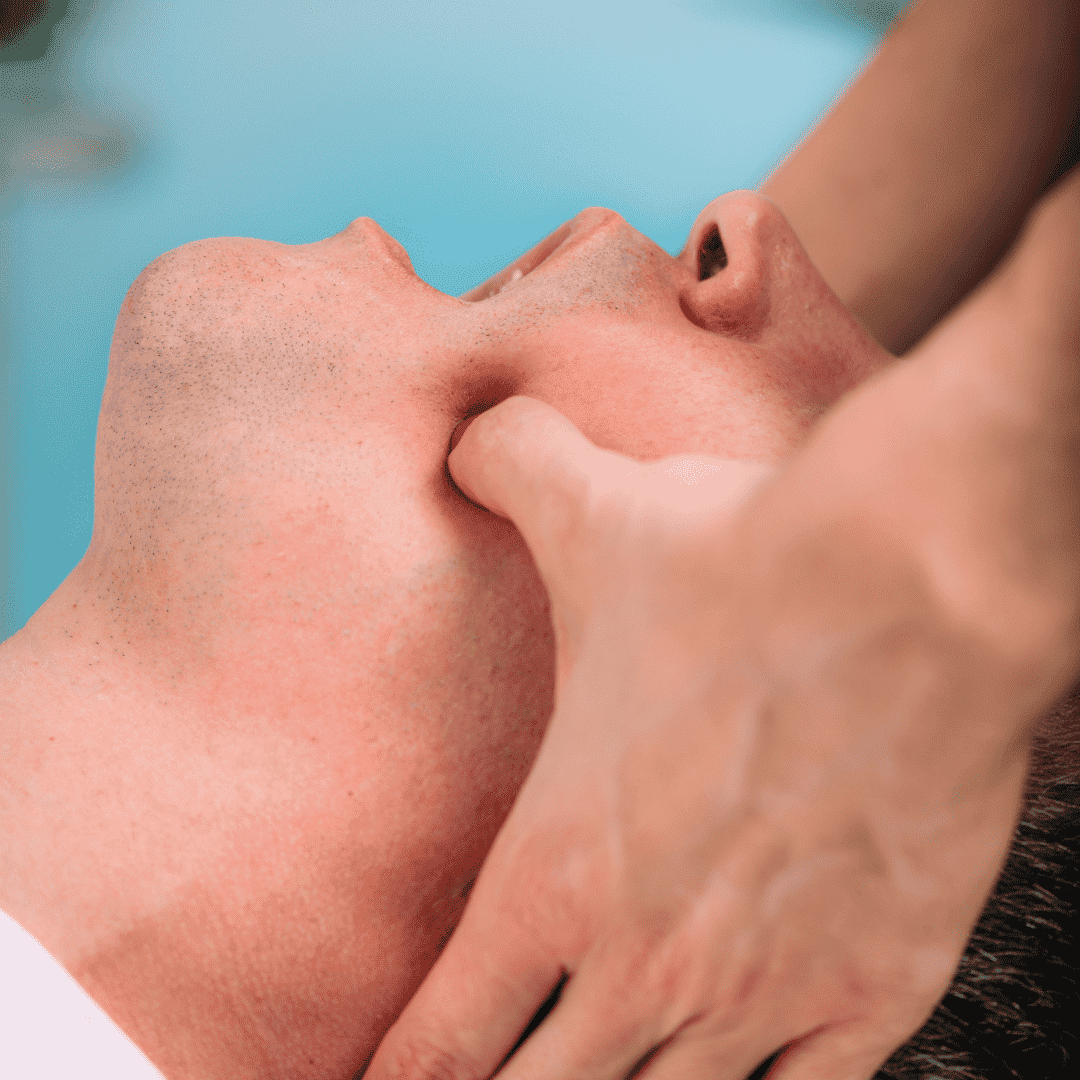You ever clench your jaw so tight you could crack a walnut? Or wake up wondering if you spent the night auditioning for “World’s Strongest Jaw”? You’re not alone.
A few years ago, on America’s Got Talent, a man tried to carve an apple… while it was in his assistant’s mouth. She had to hold her jaw open so long that afterward—no joke—she couldn’t close it. Lockjaw. The literal face of regret.
Funny thing is, that moment perfectly shows what happens when your masseter muscle—the thick muscle that lets you chew, talk, and grind—decides it’s done with your nonsense.
Meet the Masseter: The Overachiever in Your Face
The masseter is the workhorse of your jaw, constantly lifting, chewing, and clenching. When it develops trigger points, it can radiate pain into your teeth, ear, or even behind your eye. People often swear they have a toothache… only to find out it’s this sneaky muscle throwing a tantrum.
Trigger points in the masseter can happen from:
Chewing gum like it’s a sport
Clenching when you’re stressed or angry (hello, traffic jams)
Bad posture—especially forward head or phone neck
Dental work or trauma
A healthy jaw should open wide enough to fit at least two knuckles between your teeth. If not, your masseter might be staging a quiet protest.
A sore throat and not a sore jaw? Check this article out.

The One Technique That Actually Works
Here’s the secret: self-massage.
In my practice at Body Ache Escape Wellness Center in Pickerington, I’ve taught hundreds of people how to release these jaw muscles safely. It’s simple, fast, and weirdly satisfying.
Place your fingers just in front of your ear, slide down slightly, and open and close your mouth—you’ll feel the masseter jump under your fingertips. That’s your target. Gently massage in small circles for 30–60 seconds, then open and close again. You might feel warmth or even a yawn creeping in (a good sign).
Things That Keep Jaw Pain Coming Back
You can’t massage your way out of bad habits. To truly stop jaw pain, fix what’s causing it:
Quit the marathon chewing. Gum, ice, pens, fingernails—just no.
Mind your tongue posture. It should rest lightly on the roof of your mouth, teeth slightly apart, lips closed.
Relax your face. Drop your shoulders, unclench, exhale. It’s shocking how often we walk around with a “stress face.”
Fix your screen setup. Looking down at your phone all day? Your jaw hates that angle.
And if you wake up sore, consider a night guard or TMJ-friendly pillow—they can make a huge difference.
Why Massage Is the Missing Piece
A licensed massage therapist (preferably someone who knows trigger point therapy) can access the deeper fibers of your jaw, neck, and shoulders that are tough to reach yourself. Often, releasing tension in your neck and shoulders helps your jaw let go too—because it’s all connected.
I’ve seen clients walk in with jaw pain so bad they couldn’t eat solid food… and walk out saying, “I didn’t realize how heavy my head felt until now.” That’s the magic of freeing your masseter.
Final Thought: Your Jaw Is Trying to Tell You Something
Pain is rarely random. When your jaw tightens up, it’s often your body’s way of saying, “Hey, maybe chill out a bit.” So next time you feel that ache, take it as a cue to slow down, breathe, and—if all else fails—book a massage.
Your face will thank you.
Pro tip: Pair this with an infrared sauna session to relax the rest of your muscles. You’ll leave feeling like you hit “reset” on your nervous system.
Want help figuring out if your jaw pain is from tension, posture, or something else? Schedule a session with our team and we’ll find the real culprit.



